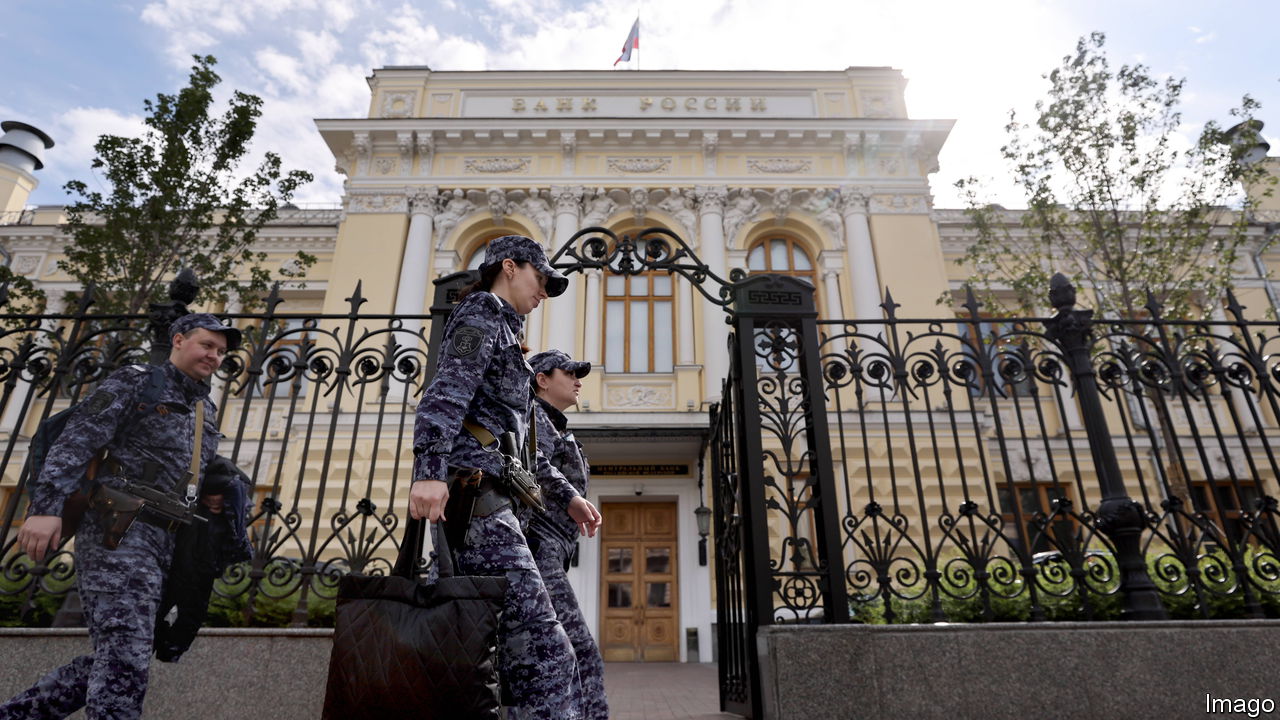- cross-posted to:
- [email protected]
- [email protected]
- cross-posted to:
- [email protected]
- [email protected]
What does the currency’s collapse mean for Vladimir Putin’s ability to wage war?
Hello my fellow liberals! Below is the content from our favorite Neoliberal Bible (lol) this time about Russia’s collapsing rouble:
On august 14th Russia’s rouble slipped past the value of 100 to the American dollar, meaning it was worth less than a solitary cent—the cheapest it had been since the immediate aftermath of the invasion of Ukraine. The currency is one of the world’s worst performers this year, outdone only by perennially troublesome peers like the Argentine peso, Venezuelan bolivar and Turkish lira.
The next day Russian monetary policymakers intervened, scrambling for a response to events for the first time since the early stages of the war. In an emergency meeting, the Bank of Russia raised interest rates by 3.5 percentage points, to 12%. Although the rouble recovered a little on the announcement, it then slipped again and is still far cheaper than its level of around 60 to the dollar this time last year. Interest-rate rises alone are unlikely to quickly stem the currency’s decline, with consequences for Vladimir Putin’s ability to wage war.
Often currency collapses are prompted by nervous international investors or fleeing domestic capital. Yet trading in the rouble, especially against the dollar, remains thin. Sanctions and capital controls have left Russia isolated from the international financial system. Therefore instead of reflecting the aggregated opinions of thousands of speculators, the behaviour of the rouble reflects the textbook economic model, acting as a barometer for the relative flow of exports out of the country (which earn foreign currency), against imports (which must be paid for with these earnings).
Since the g7 group of large rich countries imposed a $60 price cap on Russian oil in December, the value of exports has slumped. Russia’s earnings were 15% lower in dollar terms from January to July than during the same period last year, a fact only partly explained by a lower global oil price. Imports have surged as the government prosecutes its war, and buys the goods to do so. In the first seven months of the year Russia’s current-account surplus, a measure of how much more foreign currency the country receives than spends, fell by 86%, to $25bn.
On the one hand, this suggests the oil-price cap is having an impact. Attempts to dodge the policy—via wheezes involving the cost of shipping or transferring cargoes in “dark fleets”—are not making up for being forced to sell some oil at a discount. Yet on the other hand, it suggests Russia is finding ways to continue importing goods. German exports to Russia’s friendlier neighbours, for instance, have shot up suspiciously.A cheap currency raises the rouble value of the government’s oil revenues, but it also raises the cost of the imports. In June Andrei Belousov, Russia’s deputy prime minister, said the value at the time of 80-90 roubles a dollar was best for the country’s budget, exporters and importers. When the rouble was far stronger last year, thanks to oil revenues, the Russian government was happy to tout it as evidence Western sanctions were failing. That confidence has now been replaced by concern. On August 14th Maxim Oreshkin, an adviser to Mr Putin, wrote a column stressing the importance of a strong rouble and blaming the currency’s fall on the central bank.
The emergency rate rise only helped the rouble a little, with gains quickly reversed. Russia’s isolation means higher interest rates are unlikely to tempt “hot money” (speculative funds seeking short-term returns). The focus may now turn to the domestic capital that is at risk of fleeing. Strengthening capital controls, introduced in 2022 and weakened a little this year, could stanch the flow, but would take time to have an impact.
Direct intervention in currency markets is another option. The central bank has already scaled back purchases of foreign currency. Under a budgetary rule, Russia used to buy other currencies in exchange for roubles if it had a surplus of oil and gas revenue, in order to build up reserves. On August 9th this rule was abandoned. According to official figures, the country had foreign-currency reserves of $587bn at the start of August, suggesting the central bank has the firepower to prop up the rouble’s value should it wish. The problem is that some $300bn of these reserves are frozen by the West.
That leaves the government with a choice. It could cut back on spending, including on its armed forces, to reduce imports. Alternatively, and in all likelihood, the civilian economy will take the pain. Rising inflation and higher interest rates will weaken the purchasing power of ordinary Russians, forcing them to buy fewer foreign goods. Thus the fate of Russia’s economy will not be decided by the judgments of international financiers but by the depths of Mr Putin’s aggression. It is a far more unhappy situation in which to be trapped.


